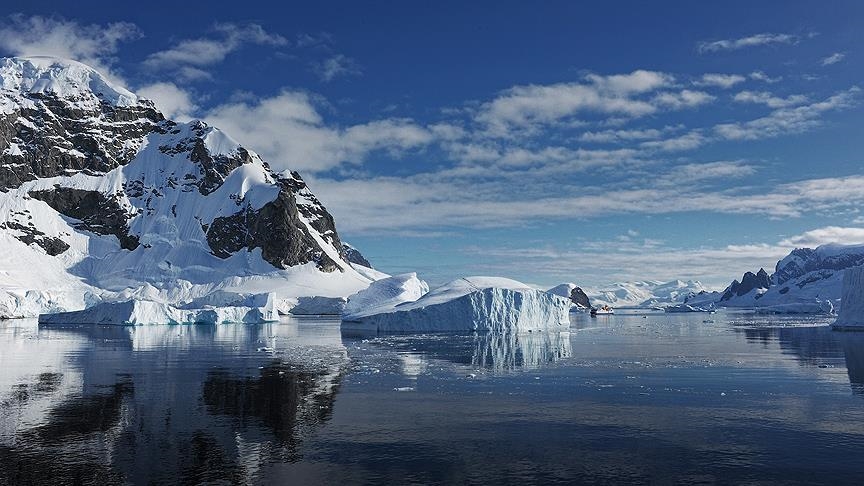Antarctica: Turkish scientists map island
On third expedition to frozen continent, Turkish research team map Horseshoe Island

ANTARCTICA
A team of Turkish scientists in Antarctica have created a three-dimensional map of Horseshoe Island by land and sea, a Turkish navy sergeant said Friday.
Earlier in February, a Turkish team traveled to Antarctica as part of the Third National Antarctic Science Expedition to spend 30 days.
“The sea maps are pathfinders for sailors,” Murat Ates, chief master sergeant in Turkish Naval Forces Office of Navigation, Hydrography and Oceanography (OHNO), told Anadolu Agency.
Ates said: “The map created by Turkish Naval Forces will show where submerges and shallow surfaces are, and precautions will be taken for a safe sailing.”
Soner Ozdemir, an engineer captain in General Directorate of Mapping, said they carry out geodetic studies that examine the shape, magnitude, gravitational field of the earth and their time-dependent changes.
He underscored the importance of geodetic global positioning system (GPS) station near Turkey’s temporary science base on the island. The station allows scientists approach the island by boats with a precise positioning, he added.
“We are planning to build a permanent GPS station about 40 miles near the island,” Ozdemir said and added: “Such a station will operate 24/7, all year long.”
In April 2016, the first-ever Turkish team of researchers -- including doctors, botanists, geologists, and oceanographers from seven universities -- traveled to Antarctica to study the impact of climate change.
Antarctica, which has no indigenous inhabitants and is not ruled by any country, is called the “peace and science continent.” It has served as a scientific research zone since the signing of the 1959 Antarctic Treaty.
Turkey currently holds observer status, but hopes to see this raised to consultative status.
The lowest temperature ever recorded in Antarctica, in 1983, was -89 degrees Celsius (-128 Fahrenheit).
In summer, however, mercury in the continent can climb as high as a balmy -15 degrees Celsius (5 Fahrenheit).
Written By Dilara Zengin
Anadolu Agency website contains only a portion of the news stories offered to subscribers in the AA News Broadcasting System (HAS), and in summarized form. Please contact us for subscription options.





